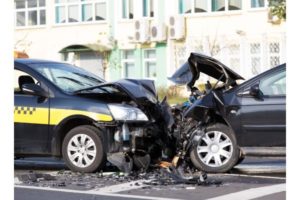
Taxis
Taxicabs are operated by private companies and are licensed by the Taxi and Limousine Commission. Taxis can be hailed on the street or calls can be made to arrange pickup. Taxis must have a medallion to operate, and the cars are frequently driven by multiple drivers.
Rideshares
Unlike taxi services, rideshares require that you download an app on your phone and arrange for pickup. Rideshare drivers typically use their own vehicles to transport passengers. The drivers are independent contractors and not employees of the companies for which they drive. They make their own hours and decide when they want to drive. Payment for rides is made through the app. Rideshare drivers operating in New York City are required to have a Taxi and Limousine Commission license.
Causes of Taxi and Rideshare Accidents
Hundreds of taxi and rideshare accidents occur every day and are caused by similar factors:
- Distracted driving—one of the most common causes of motor vehicle accidents, taxi, and rideshare drivers are especially prone to distracted driving. The use of GPS systems to get around the city can be a major distraction. While cell phone use by drivers is prohibited in New York, usage is rampant among taxi and rideshare drivers. In addition, rideshare drivers use the app on their phone to arrange their next ride, which can result in the driver multitasking when they should be focused on driving.
- Aggressive and reckless driving—taxi and rideshare drivers have a reputation for being aggressive drivers. With pressure to complete trips quickly so they can take on more rides, reckless driving moves such as speeding, disobeying traffic signals, cutting off other drivers, and disregarding the rules of the road are common. These moves put passengers, other motorists, and pedestrians at risk of serious injury.
- Drowsy driving—taxi and rideshare drivers often work long hours with little rest. Uber now requires its drivers to take a 6-hour break for every 12-hour shift. But rideshare drivers can drive for multiple companies. Taxis also have daily and weekly driving limits, but the hours are still long, and it’s easy for a driver to become fatigued. Drowsy driving can lead to decreased reaction time, poor decision making, and even falling asleep at the wheel.
Contact an Experienced Attorney
If you have been injured in a taxi or rideshare accident, you should have an experienced personal injury attorney evaluate your case. At Bonina & Bonina, P.C., we have over 50 years of experience helping injured New Yorkers. Contact us online or call us at 1-888-MEDLAW1 to schedule your free consultation. Home and hospital visits are available. Se habla español
